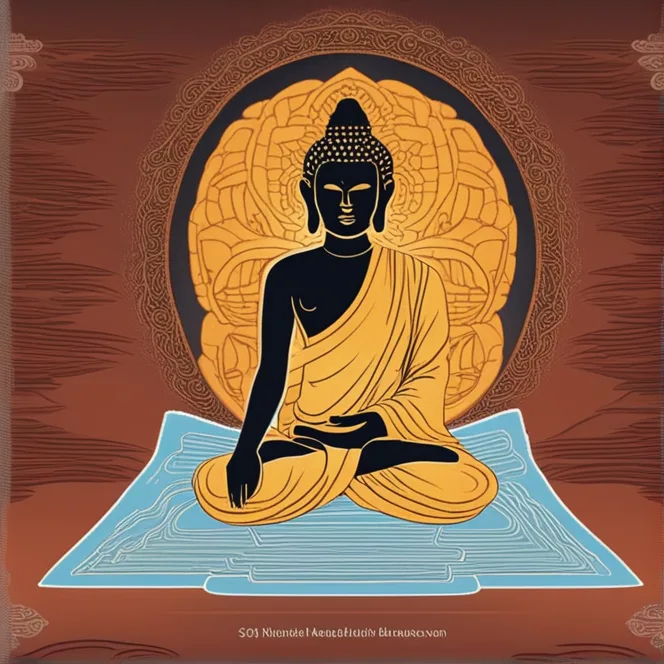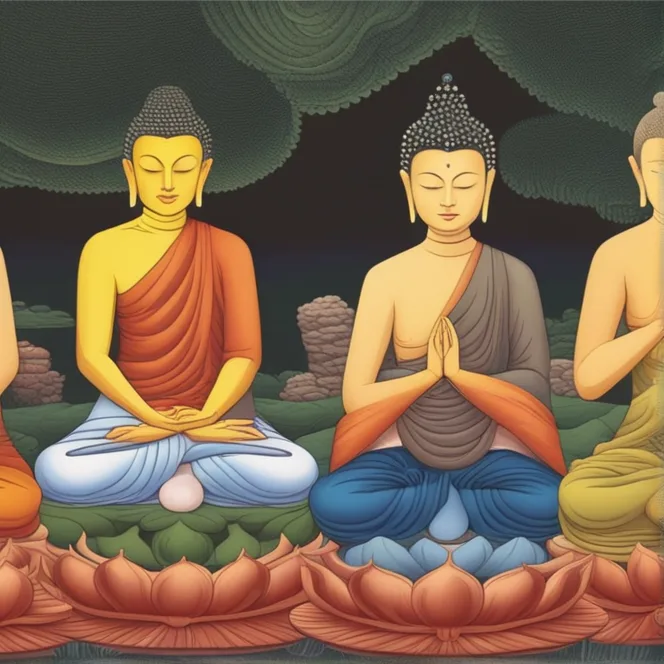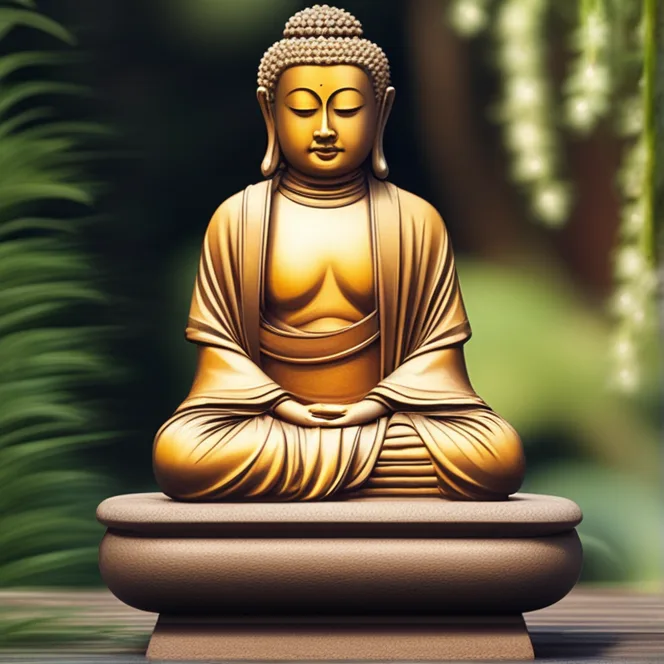
Meditation As A Pillar Of Buddhism
Explore the transformative practice of meditation within Buddhist tradition, fostering mindfulness, peace, and enlightenment.
article by Hina Kurosawa
The Core of Buddhist Meditation
Buddhist meditation sits at the heart of the journey towards enlightenment and self-awareness. Its rich tapestry weaves throughout the diverse schools of Buddhism, each with its distinct practices and philosophies. Traditionally, meditation is seen as a crucial means to cultivate mindfulness, clarity, and the cessation of suffering. Fundamental to this practice is the understanding of the impermanence of all things, a principle that guides meditators to detach from desires and aversions. Buddhism encourages followers to embark on the path of meditation not just as a practice, but as a way of living, integrating insightful awareness into every aspect of one’s life.

Varieties Within Traditions
While the goal of meditation across Buddhist traditions shares a common thread, the approach and techniques can vary widely. Theravada Buddhism emphasizes Vipassana (insight) and Metta (loving-kindness) meditation, which help practitioners gain deep insights into the nature of reality and develop feelings of benevolence towards all beings. In contrast, Mahayana traditions, including Zen and Tibetan Buddhism, often employ methods such as Zazen or Dzogchen, which focus on the direct experience of the nature of mind and the cultivation of bodhicitta, the altruistic intention to attain enlightenment for the sake of all sentient beings. Each of these practices contributes to the overarching aim of personal and spiritual development.

The Practice of Mindfulness
Mindfulness meditation, known as Sati in Pali, is a foundational practice in Buddhism, which involves maintaining a moment-by-moment awareness of our thoughts, feelings, bodily sensations, and the surrounding environment. The practice requires patience, as the mind often resists stillness, but with time, meditators learn to observe their experiences without judgment or attachment. Through mindfulness, one cultivates both Samadhi (concentration) and Vipassana, enabling profound realizations about the nature of suffering, impermanence (anicca), and the non-self (anatta). Mindfulness bridges meditation practice with daily life, offering a tool for serene interaction with life's challenges.

Integrating Meditation into Life
Buddhism does not view meditation as an isolated activity but rather as an integral part of one’s existence. The precepts and moral codes of Buddhism, like non-harm (ahimsa) and right livelihood, work in tandem with meditation practice to foster a holistic spiritual life. Meditators are encouraged to carry the tranquility and awareness fostered during meditation throughout their daily routines, work, and relationships. This integration ensures that the insights gained during meditation translate into compassionate action and ethical living, aligning one's inner transformation with outward behavior.

Barriers and Breakthroughs
The path of meditation is often fraught with challenges – be they physical discomfort, mental distraction, or deep-rooted emotional turbulence. However, these obstacles are viewed within Buddhism as opportunities for growth. Through persistent practice and the guidance of a skilled teacher, meditators can traverse these barriers, experiencing breakthroughs that offer release from the cycles of suffering. The difficulties faced on the cushion can also deepen one's empathy and understanding of the struggles inherent in the human condition, further nurturing the seeds of compassion that Buddhism holds dear.
Meditation for Liberation
Ultimately, meditation in Buddhism serves the purpose of liberating sentient beings from the cyclical existence of suffering – Samsara. Enlightenment, or Nirvana, is the ultimate destination wherein one is free from desires, aversions, and the delusion of the separate self. Meditation nurtures the wisdom and virtue necessary for this liberation, leading practitioners towards a state of peace that is unshaken by life’s vicissitudes. It is this transformative potential of meditation that has sustained its central role in Buddhism for centuries.
Published: 12/13/2023
Modified: 12/13/2023
More predictions
Come back here soon to learn more about yourself and your future


The Richness Of The Mediterranean Diet
Explore the health benefits, key components, and culinary delights of the Mediterranean Diet in this comprehensive guide.


Meditation: Diverse Practices For Mindfulness
Delve into the various meditation types that foster mindfulness, serenity, and internal harmony, catering to different preferences and lifestyles.


Inspirational Meditation Quotes
Explore a curated collection of meditation quotes to inspire mindfulness and inner peace.